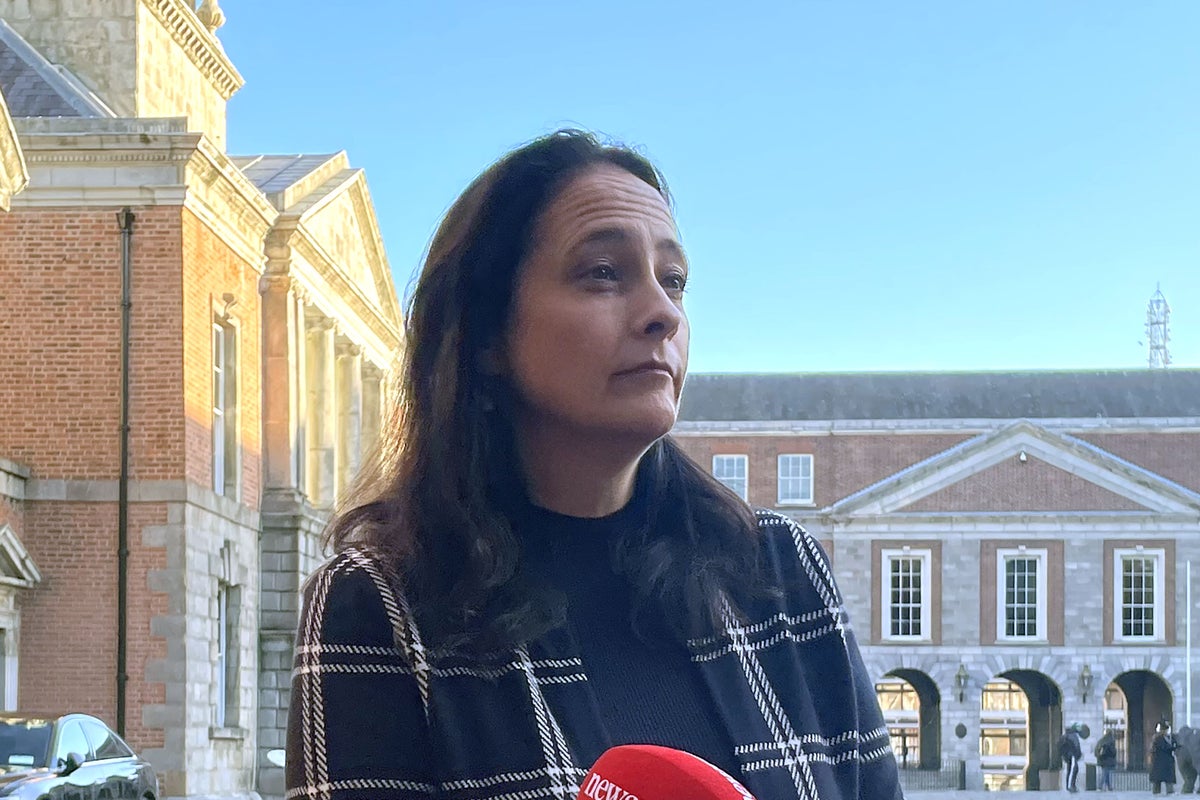
Media minister Catherine Martin has welcomed a plan to cap salaries for all RTE employees at 250,000 euro, the salary of the director-general.
It comes after RTE director-general Kevin Bakhurst outlined his plan for cost savings at the organisation, including the salary price cap and cuts of up to 400 staff members over four years.
Mr Bakhurst said that high salaries paid to RTE presenters has been a “toxic”, “corrosive” issue for the broadcaster.
He also said that he would aim to alleviate uncertainty for staff in the wake of planned reforms.
RTE digital stations and plus-one TV channels are due to be axed, technology will be updated and there will be a greater reliance on independent productions.
Around 10 million euro in spending by the broadcaster will be cut next year.
Ms Martin said on Wednesday that Mr Bakhurst’s plan shows a “welcome renewed commitment” to public-service broadcasting and to cost efficiencies.
Speaking to reporters in Dublin, she said: “I think it is only right that no-one would earn more than the leader of an organisation.”
RTE was plunged into crisis in June when the broadcaster revealed it had not correctly declared fees to its then-highest-paid earner, Ryan Tubridy.
The scandal widened as a series of other financial and governance issues emerged, resulting in a drop in the number of people paying their annual 160 euro TV licence fee compared to last year.
Prior to the controversies, RTE had submitted a request for 34.5 million euros in additional interim funding.
I’m absolutely determined to be the minister and that this is the Government that will take the decision (on the future funding model of RTE)— Catherine Martin
The Government approved 16 million in extra funding for this year, based on analysis from the state’s financial advice body, NewERA.
Following the rolling controversies at the broadcaster, a further request for funding was made, which the Government said would come if certain conditions were met by the broadcaster.
Following RTE submitting its future plan for the organisation, the Government on Tuesday approved 56 million in funding – the 16 million euro for this year and a further 40 million euro next year.
Ms Martin said that a dedicated unit would be established in her department to oversee the allocation of 40 million euro, which is contingent on the outcome of two reports into RTE.
“The first tranche of (the remaining) 40 million will not be released until we see the recommendations from the two expert advisory committees that the Government commissioned,” she said on Wednesday morning.
“Those committees will take account of all findings of any internal or external reviews and we’d be looking at – before we released that first tranche – that we’re seeing progress on the reforms already announced.
“So, for example, we’re expecting the register of interests in January 2024, we’re expecting the register of external activities in January 2024 and they have signalled a corporate governance framework by the end of this year, so we need to see the progress is continuing.
“So, the first tranche will be then and the second tranche in the second half. NewERA will also be engaging with that, so for example, the 10 million in cost efficiencies to make sure that that is being delivered upon.”
Mr Bakhurst and union representatives stressed the importance of a Government decision to be made on a long-term funding option for RTE to provide security for the broadcaster and its staff.
Ms Martin said she is hopeful a decision on the future funding model for RTE will be taken “early in the new year”.
Asked when clarity on the future funding model for RTE will be provided, Ms Martin said: “I’m absolutely determined to be the minister and that this is the Government that will take the decision.”
She said she would like to “follow through as quickly as possible” following the recommendations of two expert groups examining the broadcaster.
Asked if she would rule out exchequer funding, she said: “I believe everything should be on the table.
“So although the technical working group was looking at options, including the media charge, I suppose alternatives to exchequer funding, I believe – and I’ve said this to committee in recent weeks – that everything should be on the table for those discussions.”







